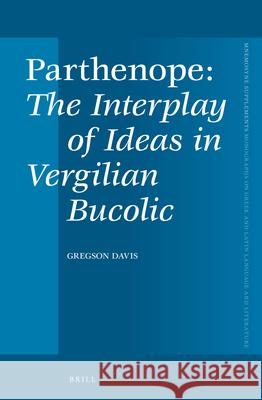Parthenope, the Interplay of Ideas in Vergilian Bucolic » książka
Parthenope, the Interplay of Ideas in Vergilian Bucolic
ISBN-13: 9789004233089 / Angielski / Twarda / 2012 / 192 str.
This study of the Eclogues focuses on Vergil's exploration of issues relating to the subject of human happiness (eudaimonia)-ideas that were the subject of robust debate in contemporary philosophical schools, including the community of emigre Epicurean teachers and their Roman pupils located in the vicinity of Naples ("Parthenope"). The latent "interplay of ideas" implicit in the songs of the various poet-herdsmen centers on differing attitudes to acute misfortune and loss, particularly in the spheres of land dispossession and frustrated erotic desire. In the bucolic dystopia that Vergil constructs for his audience, the singers resort to different means of coping with the vagaries of fortune (tyche). This relatively neglected ethical dimension of the poems in the Bucolic collection receives a systematic treatment that provides a useful complement to the primarily aesthetic and socio-political approaches that have predominated in previous scholarship. "This book is insightful and engaging; amatores of Vergil's Eclogues (scholars, students, or enthusiasts) will find the work accessible and profitable." Kristi Eastin, California State University, Fresno











